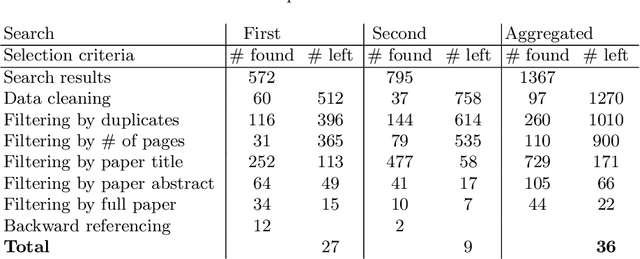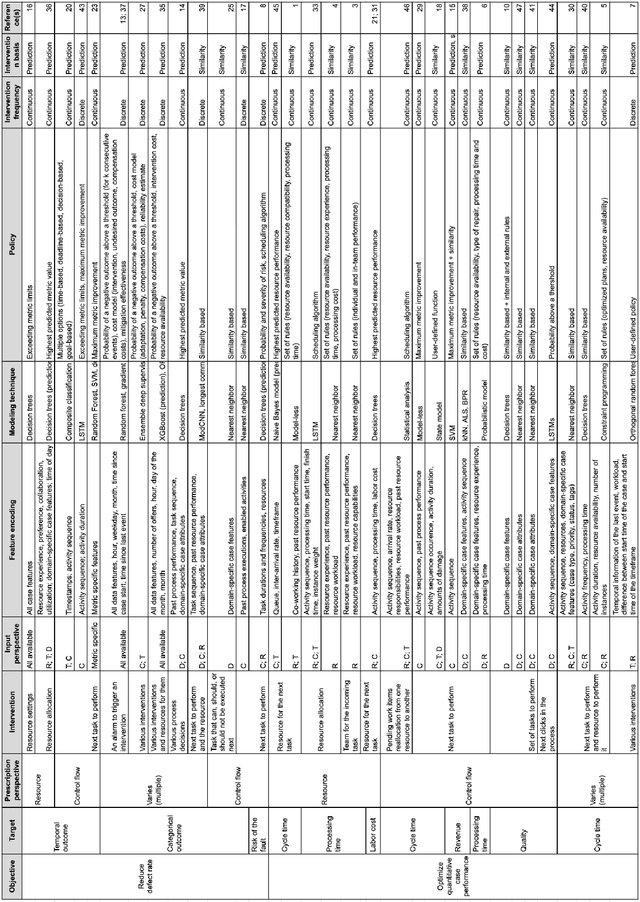Prescriptive Process Monitoring: Quo Vadis?
Paper and Code
Dec 03, 2021

Prescriptive process monitoring methods seek to optimize a business process by recommending interventions at runtime to prevent negative outcomes or poorly performing cases. In recent years, various prescriptive process monitoring methods have been proposed. This paper studies existing methods in this field via a Systematic Literature Review (SLR). In order to structure the field, the paper proposes a framework for characterizing prescriptive process monitoring methods according to their performance objective, performance metrics, intervention types, modeling techniques, data inputs, and intervention policies. The SLR provides insights into challenges and areas for future research that could enhance the usefulness and applicability of prescriptive process monitoring methods. The paper highlights the need to validate existing and new methods in real-world settings, to extend the types of interventions beyond those related to the temporal and cost perspectives, and to design policies that take into account causality and second-order effects.
 Add to Chrome
Add to Chrome Add to Firefox
Add to Firefox Add to Edge
Add to Edge